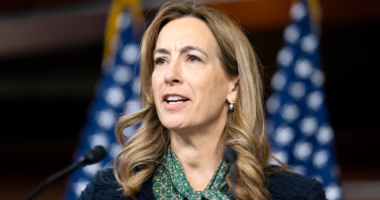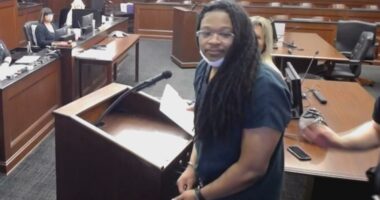Share this @internewscast.com

Alex Murdaugh, sentenced to two life terms for the murder of his wife and son, contends that his conviction was tainted by jury tampering and improper handling of evidence.
COLUMBIA, S.C. — The South Carolina Supreme Court is set to review an appeal from Alex Murdaugh, the disgraced attorney whose high-profile trial captured widespread attention, inspiring documentaries and television films.
The Supreme Court’s schedule indicates that Murdaugh’s case will be heard on February 11, 2026, with oral arguments to address his murder convictions.
In March 2023, a jury found Murdaugh guilty of murdering his wife, Maggie, and their son, Paul, at their estate in Colleton County during June 2021. Following the verdict, Circuit Court Judge Clifton Newman sentenced him to two consecutive life terms, which he is currently serving in state prison.
Murdaugh, however, continues to assert his innocence.
His legal team has outlined several arguments for overturning his conviction, primarily accusing the former Colleton County court clerk, Becky Hill, of jury tampering. During the trial, Hill had close proximity to the jury, and Murdaugh’s attorneys claim that post-trial, they received reports suggesting Hill advised jurors not to be swayed by Murdaugh’s testimony and to scrutinize his body language, which they argue constitutes tampering.
The state, however, said those comments did not sway the jury and the evidence presented in the case is what led to the conviction. In January of 2024, former South Carolina Chief Justice Jean Toal heard a motion by Murdaugh’s attorneys on those claims as they argued he deserved a new trial. Toal ultimately denied the request for a new trial, saying that Hill’s comments had to have led to a juror actually changing their verdict to be considered jury tampering.
Murdaugh’s attorneys also will argue that Judge Newman improperly allowed the state to make the case that Murdaugh’s ongoing financial crimes were a motive in the killings. They call that “illogical, implausible, and unsupported by the evidence,” in their filing with the court. Witnesses were allowed to testify about Murdaugh’s embezzlement of funds from his law firm, which he hadn’t gone to trial for at the time. He was subsequently convicted after his murder convictions for those violations.
The state, however, said he was desperate at the time and was trying to distract investigators from discovering the millions he had taken.
Murdaugh’s trial lasted for six weeks and was broadcast gavel to gavel by multiple media outlets and drew national attention. Interest in the case led to the creation of documentaries, books, and two TV movies, including one that recently aired on Hulu.

















